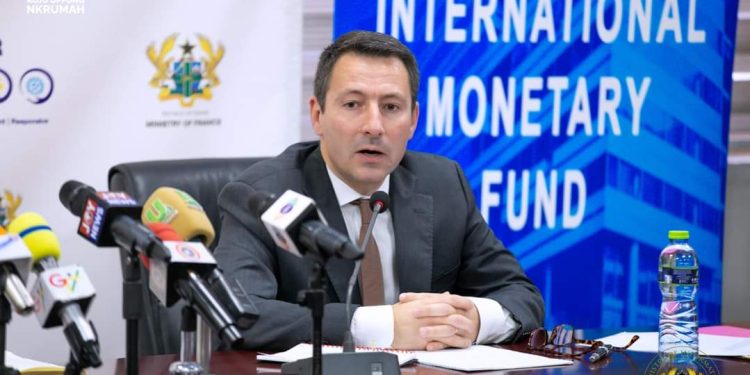|
Getting your Trinity Audio player ready...
|
The International Monetary Fund (IMF) and Ghana have reached a staff-level agreement on the third review of Ghana’s US$ 3 billion extended credit facility.
It follows the conclusion of a two-week assessment of the country’s fiscal data by a mission staff from the Fund. The review saw the team assessing Ghana’s performance per targets and structural benchmarks as at end of June 2024.
The staff-level agreement was reached after what the Fund described as “programme performance has been generally satisfactory, with remarkable progress on debt restructuring.”
It is however subject to the approval of the IMF Board for the fourth tranche of US$360 million. This tranche if approved will bring Ghana’s total disbursements to US$ 1.92 billion dollars.
“The IMF staff and Ghanaian authorities have reached a staff-level agreement on the third review of Ghana’s economic program under the Extended Credit Facility arrangement”, Stéphane Roudet, IMF mission staff to Ghana told the media on Friday.
“Performance under the IMF-supported program has been generally satisfactory. All end-June 2024 quantitative targets were met, and progress on key structural reforms has continued notwithstanding delays in a few areas. The authorities’ policy and reform efforts under the program have continued to deliver encouraging results”, he added.
Ghana recently achieved a 98% participation and consent solicitation from Eurobond holders in the restructuring of the country’s external debt.
“Ghana has made remarkable progress on its public debt restructuring. After successfully restructuring domestic debt last year and reaching agreement on a Memorandum of Understanding with Ghana’s Official Creditors Committee (OCC) under the G20 Common Framework in June, the government has just announced the successful completion of the consent solicitation to restructure its Eurobonds, with the exchange planned to take place in the coming weeks. The authorities are committed to pursuing good-faith efforts to reach an agreement with other commercial external creditors on a debt treatment consistent with program parameters and the comparability of treatment principles.”
Source: myghanadaily


